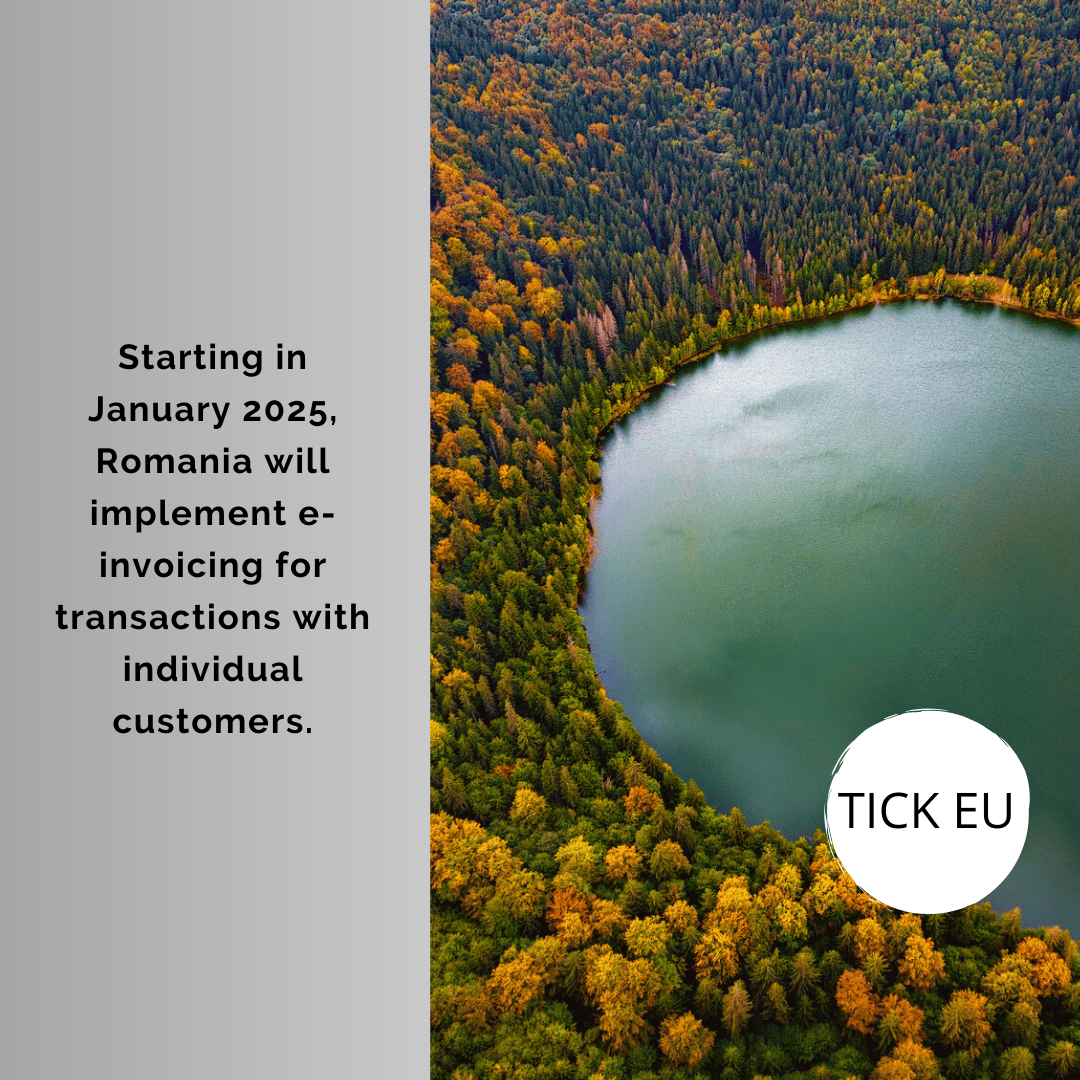The Ministry of Finance has announced that mandatory electronic invoicing for business-to-consumer (B2C) transactions will take effect in Romania from January 1, 2025.
Key details:
📅 Timeline and implementation:
July 1, 2024: Companies can start using the RO e-Invoice system for B2C transactions.
January 1, 2025: Mandatory adoption of the RO e-Invoice system by all businesses issuing consumer invoices.
Minister Marcel Bolos emphasized that this step aligns with discussions in the European Union regarding standardized electronic invoicing for both B2B and B2C transactions. It is a significant part of ANAF’s digitalization efforts aimed at ensuring accurate reporting of economic operations and enhancing measures against tax evasion.
Exemptions and exceptions:
Exemptions: Businesses issuing invoices unrelated to VAT, as defined by the Tax Code, and entities such as diplomatic missions, EU institutions, and NATO forces (unless they opt into the system).
Until June 30, 2025: Associations, foundations, and individual farmers under special regimes are exempt but can adopt the system earlier if desired.
🔍 Enforcement measures:
Invoice reporting: If recipients do not receive invoices through the RO eInvoice system for goods or services paid upon delivery, they can notify tax authorities.
Mandatory use by enforcement bodies: Bailiffs and the National Agency for the Administration of Seized Assets must use the RO eInvoice system when issuing invoices on behalf of suppliers required to report through the system.
🖨️ Updates to electronic fiscal cash registers:
Amendments to GEO No. 28/1999: Receipts must include the taxpayer identification number instead of the VAT registration code of the recipient. Receipts must display the date and time of issuance, receipt identification number, and the fiscal cash register’s tax series in QR code format for automated data verification. In case of technical challenges with QR code implementation, compliance is extended for two years after the ordinance’s enforcement.
🚫 Exclusion of excise duties from budgetary restructuring:
Amendment to Government Ordinance No. 6/2019: Excise duties are excluded from the budgetary restructuring procedure, ensuring these consumption-based taxes paid by buyers are declared and paid to the state budget without restructuring, supporting compliant taxpayers.
This summary outlines the Ministry of Finance’s new regulations aimed at enhancing transparency and combating tax evasion through mandatory electronic invoicing in Romania.
For further information and support in navigating the global eInvoicing landscape, our expert team is ready to assist, offering strategic, data-driven advice at every step.


